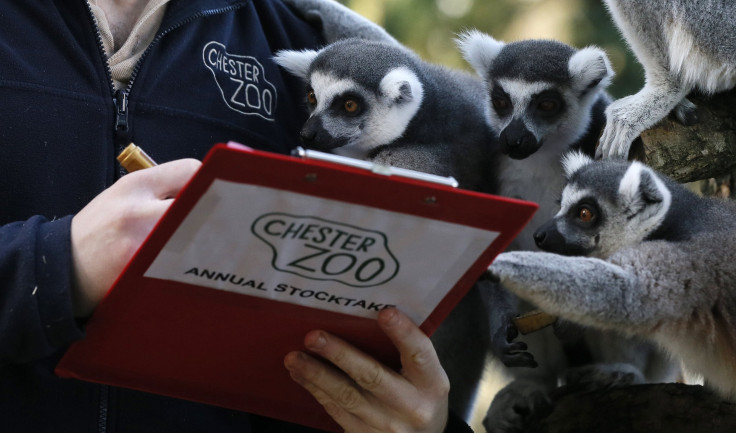Lemurs That Eat Fruit Have Better Memories, Study Suggests Primate Cognition Evolved Over Need To Find Food

New research into how primates evolved cognitive skills promotes the theory that primate and human intelligence originated from their need to meet certain challenges, like foraging for food. The new study, which looked at how diet affects Madagascar lemurs’ spatial memories, challenges the dominant belief that primate cognition resulted from the demands of social living.
Researchers from the Duke Lemur Center in Durham, N.C., performed several cognitive skill tests on four lemur species. They found that lemurs whose diets consist primarily of fruit scored higher on spatial memory tests than lemurs whose diets were varied and were made up of leaves, insects and seeds.
The results of their study, published in the journal Animal Cognition, suggests that relying on seasonal foodstuffs promotes sharper cognitive skills and a competitive edge.
“Evolutionary theories suggest that ecology is a major factor shaping cognition in primates,” the authors noted. “However, there have been few systematic tests of spatial memory abilities involving multiple primate species. Here, we examine spatial memory skills in four strepsirrhine primates that vary in level of frugivory.”
Sixty-four lemurs participated in the study, which measured the animals’ ability to recall the locations of food in mazes and boxes. The first experiment had lemurs learn the location of food hidden in one of two arms of a T-shaped maze. When presented with the same maze a week later, the fruit-eating lemurs were the only species that remembered which arm the food was hidden in.
A second experiment had lemurs learn how to find food hidden in one wing of a cross-shaped maze. Ten minutes later, the lemurs were released into the maze again, but from a different starting point, meaning they had to take different turns to get to their tasty prize. Again, fruit-eating lemurs proved capable of meeting the challenge.
"Before they might have turned right, but now they had to turn left to get to the same spot," Alexandra Rosati, a researcher from Yale University, said in a statement.
Researchers concluded that the lemurs relied on memory of the place where the food was hidden, rather than simply performing the same turns they took the first time. In the wild, this keen spatial memory helps lemurs find fruit from one season to the next.
Rosati and her colleagues are not the first to suggest that primate and human intelligence originated from a need to forage. Several other researchers, including scientists from the University of California at Berkeley and the University of Texas, have posited that intelligence developed from the task of looking for food. Developing a detailed “spatiotemporal cognitive map” would undoubtedly have given primates a leg up in the wild.
© Copyright IBTimes 2025. All rights reserved.






















